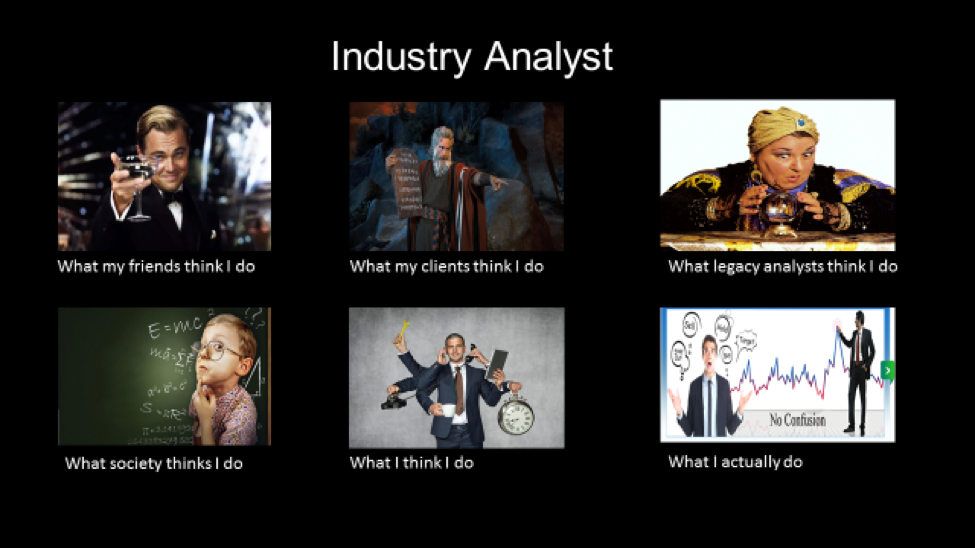Being an industry analyst, our work differs greatly from day to day and as such, today more than ever, we are wearing an ever increasing number of hats and taking on more responsibilities. Although, rather like the transition to the As-a-Service Economy, which dominates our research at HfS, overcoming the specter of legacy is one our key concerns.
The scene: a dinner party with unknown persons. Polite small talk ultimately leads to the question, “So what do you do?” I suppress a sigh, take a fortifying sip of whatever is lying around and announce, “I’m an industry analyst” (or something along those lines). Now the response can vary dramatically here, the most common been “A what?”, “You work with numbers??” or, in more polite company, a vague “Oh…”. Following this I feel compelled to explain what I do. Now there is of course another, less savory, reaction to my announcement of employment, this often comes from those working in the industry and having had too much contact with legacy analysts of old who plied their trade in arrogance, assumptions and skepticism bordering on derision.
So back to the explanation, what do I actually do?
Well, it really depends on the day. Right now I’m blogging, whilst reading a press release and getting a tweet or two out (coffee is obviously a given). Last week I was sat in Blenheim Palace (google it!) enjoying a glass of wine, listening to an orchestra and speaking to some serious industry leaders in the BPO world. Other notable activities include consulting calls and strategy sessions with both buyers and service providers, Blueprint project briefings, Soundbite, PoV and Blueprint production, travel, events and more travel. Needless to say not many two days are the same, or, end at 17:30. This largely represents todays working environment. The ability to be flexible, work on the fly and multi-task have all become hygiene in the industry analyst world of today.
So back to these “legacy” analysts I mentioned earlier. The industry analyst community has garnered a checkered reputation in years gone by. The age of the pompous, overly and aggressively opinionated analysts are gone and in has come industry analyst 2.0. Who aim to work alongside industry, commentating on development and of course calling out bad practice, but ultimately assisting in educating the market and facilitating change as the industry moves towards the As-a-Service Economy.
So with this in mind, what does it mean to be an industry analyst in 2016?
At the end of the day it is content. Relevant, timely, accurate, consumable and thought provoking content. As analysts, we need to keep a continual eye on the pulse of the industry, all the while dodging the marcomm puffery from suppliers and getting to the overarching themes in the market. In addition, working with enterprise service buyers in formulating sourcing decisions in one’s field of analysis is key. The watch word here is “analysis”, not simply research. Research gets you to the door but real insight and analysis gets you invited to the party. Therefore, the most successful analysts in today’s world don’t only sit in an office working on single research projects but rather analyze, educate, track and engage the market with the goal been the betterment of industry.
Posted in : Uncategorized







